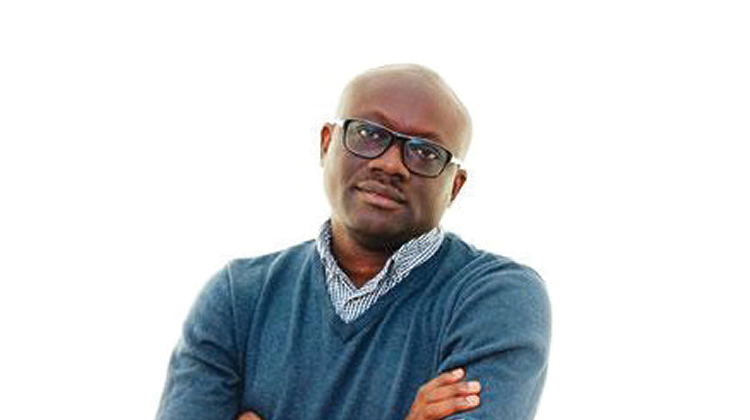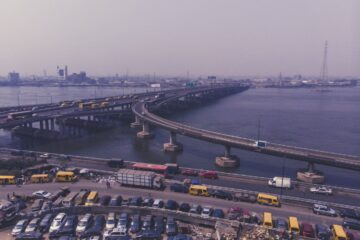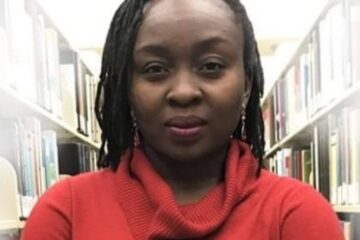
Simon Kolawole
The best way to enjoy electioneering seasons is to be emotionally detached.
The moment you are a player — or you are emotionally invested — you cannot have fun to the fullest. There will be too much tension and excitement racing through your blood. Too much prejudice will block your sight. You will cry when you should be laughing and laugh when you should be crying. Although I can bet that everybody (including myself) has a soft spot for one presidential candidate or the other, everybody’s emotions are not on the same wavelength. There are levels to these things. Less than 10 weeks to the presidential election, I can bet that most people already know where they belong.
The campaign season has given us plenty entertainment and worries. Asiwaju Bola Ahmed Tinubu, the APC presidential candidate, has been under the spotlight for his gaffes. And there are plenty of them, the chief being his closing prayer at the flag-off of his campaign in Jos, Plateau state, on November 15. He was saying “God bless PD…” before changing his supplication to “God bless APC”. This was particularly strange. He has been an opponent of PDP since 1999, so I would not expect him to invoke God’s blessings on them, not when he is the APC candidate. Except, of course, he meant to say “PDM” which his political associates in 1991/92 formed ahead of joining the PDP in 1998.
One of those associates was Alhaji Atiku Abubakar, the vice-president from 1999 to 2007 and the presidential flagbearer of the PDP in the 2023 elections. Atiku was the brain behind PDM (Peoples Democratic Movement) made up of several political associates of the late Maj-Gen Shehu Musa Yar’Adua, the former chief of staff, supreme headquarters who was second-in-command to Gen Olusegun Obasanjo as military head of state (1976-1979). PDM was the strongest faction of the PDP from 1999 to 2003 before Obasanjo, now civilian president, dealt a fatal blow on it while disrupting Atiku’s plan to unseat him. Obasanjo went on to make sure Atiku did not succeed him in 2007.
Why would Tinubu want God to bless PDP or PDM, no matter how close he was, or is, to Atiku? They are now political rivals, for crying out loud! Well, one good turn deserves another. Atiku repaid Tinubu’s friendship with a prayer of his own on December 13 — also in Jos! There must be something about Jos. In his remarks at the rally, Atiku was shouting “God bless A…” before saying “I mean PDP!” Nigerians are making much of the fact that both gaffes happened on a Tuesday, but I am not aware that Tuesdays carry any significance in superstition. I know of Mondays, which foretell how the week would go. Caution: I am not an expert on superstitions, so don’t trust my analysis.
One gaffe that did not trend was committed by Mr Peter Obi, the presidential candidate of the Labour Party, in nearby Lafia, Nasarawa state, on October 13. This preceded the “God bless” syndrome. Speaking at his rally, Obi said: “Nasarawa is big… it is a great country.” His supporters said he meant Nasarawa can be a great country if it were on its own, since Israel is not as big. Nice one! After all, Nasarawa, like Israel, is rich in agriculture. And Israel is a great country. Don’t you just love the Obi-dients! But, seriously, given that Nasarawa was created out of Plateau in 1996, are there demons of gaffe in that axis that we need to cast out? Hint: some pastors can make money from it.
Another interesting thing this season is the townhall meetings and TV debates. The trailblazing THISDAY/Arise group is organising a series. I hereby confess that I love debates. I enjoyed the 1993 face-off between Chief MKO Abiola and Alhaji Bashir Tofa. However, Tinubu has ignored invitations by THISDAY/Arise — and the group has in turn accused him of trying to undermine free speech. A full-blown war has now ensued between both camps. Tinubu’s media managers have maintained that their principal has his own media engagement plan and excluding THISDAY/Arise is not the same as excluding the entire Nigerian media. That is the matter we have been trying to settle since.
But why do favourite presidential candidates shun debates? Ahead of the 1999 presidential election, a TV debate was organised between Obasanjo, the PDP flagbearer, and Chief Olu Falae, the joint candidate of the Alliance for Democracy (AD)/All Peoples Party (APP) which you can easily call the APC of today. Obasanjo, who was generally believed to be the candidate of the establishment, did not turn up for the scheduled two-hour debate. A disappointed Falae said: “It is an understatement to say I am embarrassed to sit alone and be debating with myself.” It had to be reduced to one hour, more like a TV interview. Obasanjo’s handlers said he was not aware of the well-publicised event.
The conclusion in the AD/APP camp then was that Falae, an economist trained at the University of Ibadan and Yale University, was going to tear Obasanjo to pieces. There were a few people who believed that the Abiola/Tofa debate played a major role in the way Nigerians voted on June 12, 1993 and Obasanjo did not want to be outshined. I don’t know how true. All these were conjectures. Whatever the case was, Obasanjo did not attend the 2003 debate either. That one could be explained this way: he was the sitting president and his record was going to be savaged by his opponents, including Maj-Gen Muhammadu Buhari, Dim Emeka Ojukwu and Pastor Chris Okotie.
While what Obasanjo did in 2003 was basically an interview with a panel of journalists, Alhaji Umaru Musa Yar’Adua, the PDP candidate, did not even make media appearances in 2007. I remembered he only visited Mr Nduka Obaigbena, THISDAY chairman, at his Ikoyi home and granted something like an interview. He fell ill during the campaign and some rallies went on without him. When rumours started circulating on the internet and via SMS (there was no WhatsApp then) that Yar’Adua was dead, Obasanjo had to call him on live TV to ask, rather hilariously, “Umoru, are you dead?” Yar’Adua went on to win the election which, even in his own opinion, was a shambles.
The conclusion of many analysts was that Yar’Adua would still have won without the performance-enhancing drugs administered by the Independent National Electoral Commission (INEC) under the leadership of the inimitable Prof Maurice Iwu. Sadly, Yar’Adua was not alive to run for a second term. Dr Goodluck Jonathan, his deputy, took over. He too did not participate in the 2011 TV debate. At least he had a PhD, so the Falae scenario could not have been his worry. And he had only been in office for one year, so there was not much to criticise him for. The NTA finally organised what was really an interview for him. He still won the election, like Obasanjo and Yar’Adua did before him.
Ironically, Jonathan badly wanted a debate with Buhari in 2015. Even though his own five-year record as president risked coming under attack, including issues of corruption and Boko Haram insurgency, Jonathan was obviously finally confident that Buhari would not outperform him in a debate, so he wanted it. Buhari, who debated Prof Pat Utomi in 2007, declined. Jonathan, instead, had to debate with Mr Godson Okoye of the United Democratic Party (UDP), Mrs Remi Soniaya of the Kowa Party, Chief Chekwas Okorie of the United Progressive Party (UPP), and Mr Martin Onovo of the National Conscience Party (NCP). Need I remind us that Buhari went on to win the election?
In 2019, Buhari copied Jonathan by refusing to turn up for the debate. His record was going to be under attack, obviously, with Atiku tipped to do better in a televised debate. That Buhari went on to win the election without debating might have strengthened the unwanted tradition in our presidential electioneering where sitting presidents or bookmakers’ favourites do not turn up. Tinubu’s media managers have made it clear that he would not attend the THISDAY/Arise series because there is a plot to embarrass him. I do not see Tinubu participating in any debate either — if history is anything to go by. Should we, therefore, conclude that presidential debates are jinxed?
My sense is that those rated as favourites do not want to debate because, while there is a consensus that debates don’t determine how most Nigerians vote, a slip of tongue may have a negative effect on them. It is more about not wanting to surrender the advantage so as not to lose the momentum. This has been recurring. Also, all the other candidates will be focusing on attacking the so-called front-runners. In the process, their opponents may say something really damaging that will cost them some votes. Some would prefer to be attacked in absentia than being embarrassed on air by their opponents. From where I am watching proceedings, that is my usual reading of the reluctance.
Putting all the brickbats and missiles aside, we are faced with the reality that there is no Nigerian law compelling candidates to debate. It is more of a tradition. I love debates particularly because you can gauge the level of knowledge and composure among the candidates. However, I cannot vouch that debates will determine the outcome of elections. Just like the issue of vote-buying, my understanding of the Nigerian electorate is that elections are won more based on political networks, affinities and primordial sentiments rather than academic credentials such as PhD and ability to debate. More so, you may speak smooth English during debates and still be a disaster in office.
All said, though, I am enjoying this campaign season without tears. The cheeky rascal in me is loving some of the missiles being exchanged between Tinubu and Atiku. They are comical. I love the Dubai digs and the Chatham House taunts. I am not enjoying much of the Obi vs Tinubu jibes because I feel they are too deep. Not surprisingly, there is little or nothing in the Atiku vs Obi axis, probably because until a few months ago, Obi was a PDP member. He was Atiku’s running mate in 2019. The affinity is too fresh to be discarded just like that. I can understand. But that would not stop me from enjoying all the drama this electioneering has to offer. I need another bag of popcorn, please.
Culled from TheCable











